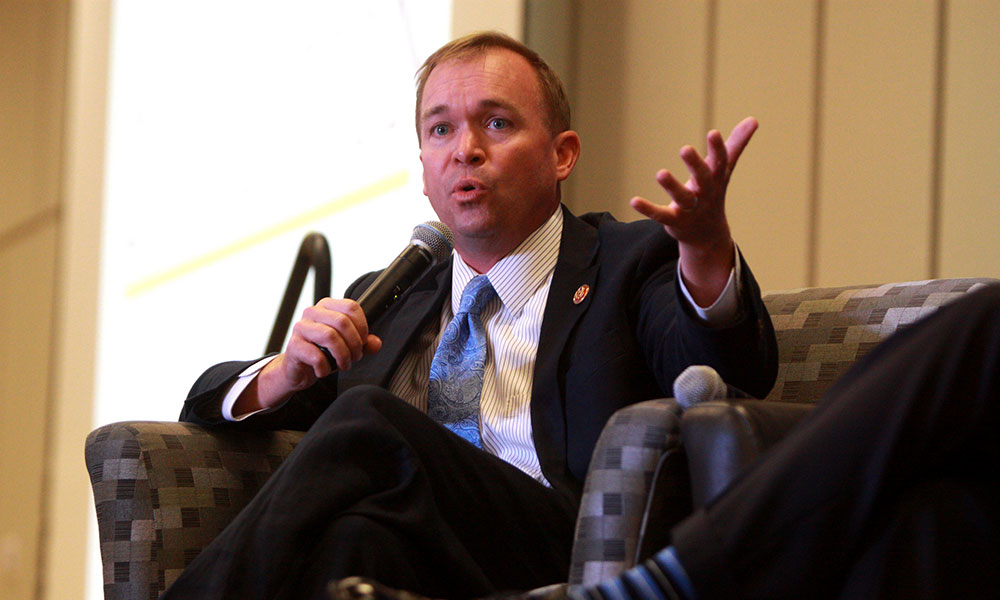
Takeaways From CFPB’s High-Profile Leadership Fight
The Consumer Financial Protection Bureau’s legally mandated structure has created a high-profile leadership crisis this week—one that reflects existing criticisms over the laws that govern the bureau.
Associations and advocacy groups closely follow the Consumer Financial Protection Bureau (CFPB) in large part because of its impact as a regulator, which has drawn major controversy in recent years.
But associations might want to keep an eye on it this week for another reason: It’s a great example of what can happen when a power vacuum is created around an organization.
Part of the problem is that the CFPB is a highly controversial organization—and has been throughout its roughly six years of existence. The bureau has rules in place intended to prevent a sitting president from removing a CFPB leader—a sticking point for President Donald Trump, a longtime critic of the organization.
But last week, Richard Cordray, the CFPB’s longtime head appointed by Barack Obama, departed his role on his own accord, in part because it’s believed he’ll run for governor in his home state of Ohio.
But he left with a bit of a surprise—just before he stepped down, he appointed Leandra English as the deputy director of the bureau, which would make her the acting director under the Dodd–Frank Wall Street Reform and Consumer Protection Act. The move was likely intended to prevent Trump from putting in his own acting director without congressional approval. Trump appointed someone anyway—Office of Management and Budget Director Mick Mulvaney—and as a result, two acting directors showed up to work on Monday morning.
The conflict is likely to be decided in court, as English sued on Sunday to prevent Mulvaney from running CFPB, but the situation is poised to lock up the bureau until it’s resolved.
Will Any Work Get Done?
The unusual saga highlights the sheer contention there is around the position, with two leaders who likely share polar opposite views. And if that contention isn’t resolved soon, it could create some major problems for financial associations.
A Bloomberg report noted the potential ripple effect the leadership crisis will likely create in the executive branch: New CFPB regulations will be delayed, and other related organizations might be negatively affected as well. The head of the bureau is also a voting member of the Financial Stability Oversight Council, as well as a board member of the Federal Deposit Insurance Corp. (FDIC).
All this means that organizations subjected to financial regulations will face a lot of potential headaches.
“If this goes for longer than a week, banks are going to feel an impact,” Consumer Bankers Association President and CEO Richard Hunt, a CFPB critic, told Bloomberg. “And that kind of uncertainty isn’t good for anyone.”
A Long Slog Toward Resolution
The debate around the structure of the bureau is long-running, of course, and predates anything that happened in the past week. CFPB was designed to limit presidential influence because the head of the organization is intended to be a watchdog whose leadership can’t be removed just because the president wants him or her gone.
“We gave a lot of attention to how to structure the CFPB and how to protect its independence, because its job is to go after some very powerful forces in the economy,” said former Rep. Barney Frank (D-MA), one of the coauthors of the bill that all created the bureau, in comments to CNN over the weekend.
Trade groups have repeatedly challenged this structure over the years, however, and whether the legal system will be interested in preserving the original intent of the law on this point is up for debate.
At least one court case, PHH v. CFPB, has raised constitutionality questions about how the organization is structured. That case, pending a ruling in the D.C. Circuit Court of Appeals, could lead to the bureau’s current organizational structure being ruled unconstitutional—and ensuring Mulvaney, or whomever else Trump wants to appoint, gets the position.
For now, the bureau stands not merely as a regulator, but as an example of the confusion that might happen when the public doesn’t know who’s in charge.
Mick Mulvaney, one of the two people who showed up to work as the CFPB's acting director on Monday. (Gage Skidmore/Flickr)






Comments